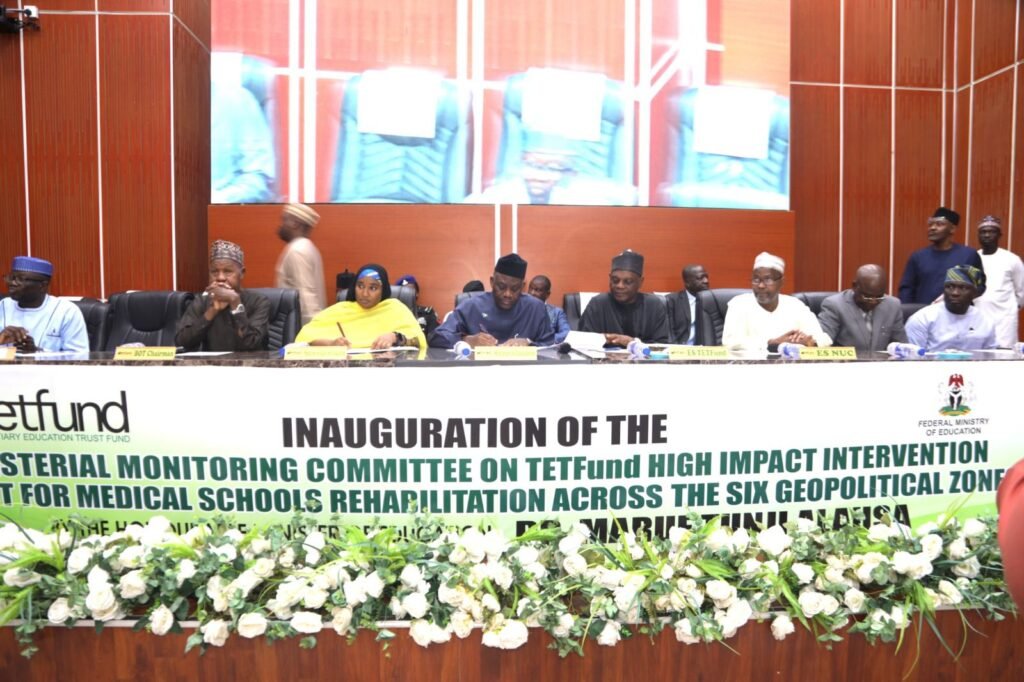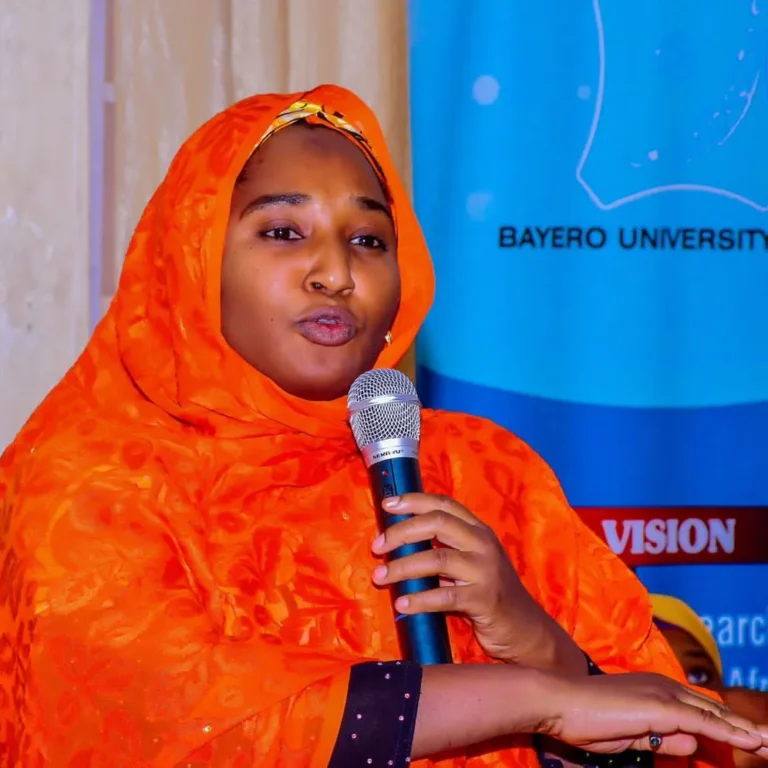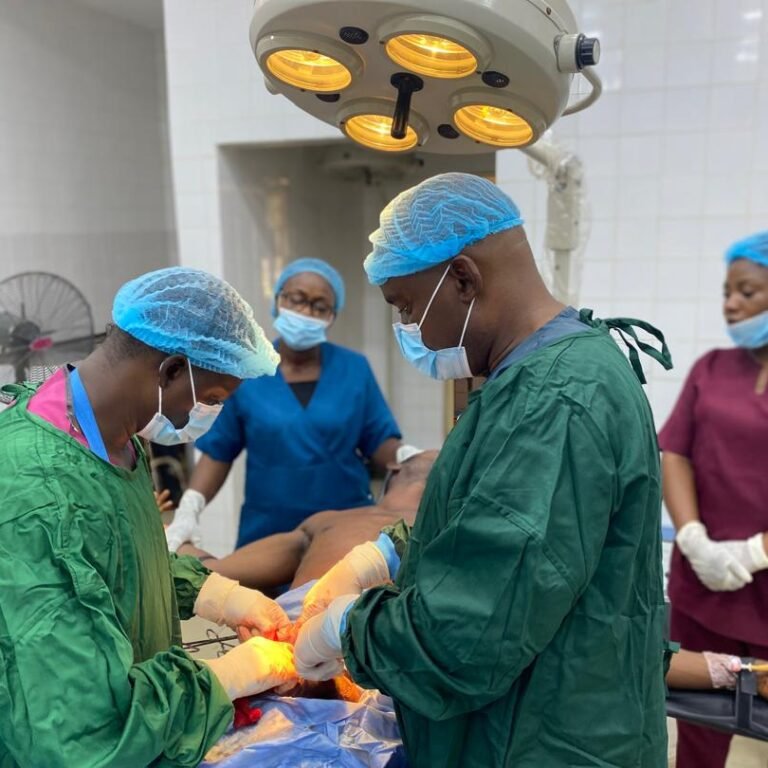
By Uriel Ihotu
The Federal Government on Tuesday inaugurated a Ministerial Monitoring Committee tasked with overseeing the implementation of the Tertiary Education Trust Fund (TETFund)’s High Impact Intervention Project for the rehabilitation of medical schools across Nigeria’s six geopolitical zones. The initiative aims to reposition medical education and strengthen healthcare delivery in the country.
The inauguration ceremony, held at the TETFund Auditorium in Maitama, Abuja, was presided over by the Minister of Education, Dr. Yusuf Tunji Alausa. He described the intervention as a transformative initiative to equip medical schools with modern infrastructure and cutting-edge learning facilities.
In his keynote address, Dr. Alausa highlighted the urgent need to address the infrastructural deficits plaguing medical schools, noting that the initiative would enhance teaching, learning, and research environments. He stressed the importance of producing a new generation of highly skilled healthcare professionals capable of meeting Nigeria’s growing and complex health demands.
“Medical education is the bedrock of any country’s healthcare system,” the Minister said. “Investing in our training institutions is critical to preparing doctors, nurses, and specialists who will deliver quality care to our people.”
Dr. Alausa explained that the newly inaugurated committee would be responsible for ensuring judicious use of resources, monitoring project progress, and promoting accountability throughout the rehabilitation process. He called for inclusive engagement with stakeholders—including faculty, students, medical associations, and regulators—to ensure reforms align with global standards while addressing local realities.
The Minister of State for Education, Prof. Suwaiba Sa’id Ahmad, echoed the Minister’s sentiments, emphasizing that the project is not only about infrastructure, but also about the future of Nigeria’s healthcare system. She urged committee members to discharge their duties with integrity, professionalism, and a deep sense of national responsibility.
“This is a legacy project,” she said. “The quality of healthcare in Nigeria in the years to come depends on what we build today in our medical schools.”
In his remarks, the Executive Secretary of TETFund, Arc. Sonny Echono, thanked President Bola Ahmed Tinubu and the Federal Ministry of Education for their unwavering support. He stated that the intervention would focus on upgrading lecture halls, laboratories, and clinical training centers, thus enabling schools to expand admissions and improve training outcomes.
According to Echono, the goal is to eliminate outdated infrastructure and create conducive environments for world-class medical education. He expressed confidence in the committee’s ability to deliver on its mandate and called for results-driven execution.
On the sidelines of the event, Vice Chancellors of Benue State University (recently renamed Rev. Fr. Moses Orshio Adasu University), Prof. Joe Tor Iorapuu, and Musa Yar’Adua University, Katsina, Prof. Shehu Salisu, applauded the Federal Government for the initiative.
Prof. Iorapuu praised Governor Hyacinth Alia for his commitment to education in Benue State and described the federal intervention as bold and timely. Prof. Salisu, on his part, expressed hope that the impact of the project would be evident in the quality of healthcare professionals produced across the nation.
As reported by New Nigerian Newspapers, the inauguration of the monitoring committee marks the beginning of a comprehensive overhaul expected to redefine the standards of medical education in Nigeria and significantly improve the country’s healthcare outcomes.








